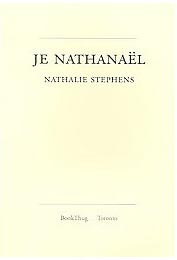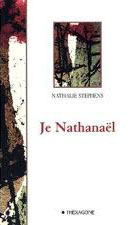Dis/locate, em/body

N. S., Nathalie Stephens, Nathanaël composes in English and French, sometimes separately, sometimes simultaneously, sometimes in the permeable ache between, amidst multiple voiced and embodied pronouns, and in the space of in-between, which she calls l’entre genre. As preposition, entre, can mean between or among, as prefix, it can denote the idea of reciprocity or of being in the middle of two things, as verb, to enter, to go into, to begin. As well, genre does not only signify a category of artistic composition or literature, but also a general kind or type. Biologically it also refers to genus; linguistically to gender. As such, Stephens enters this space of in-between-kind not to occupy what we may easily confuse at first as a binary (poetry/prose, English/French, female body/male body) but rather to explore the porosity between multiple genres, languages, bodies, voices. In the porosity, a dislocation; in the dislocation unease; in the unease a fruitful and unexpected altering.
In her work, Stephens troubles the idea of the singular mother tongue, singular body, singular place/home, singular desire. The tongue of her language is neither and both English and French, for her vocabulary may at times look like one but be syntactically the other, or sound like one but be the other, or behave like one but shadow the other.
 “What is a fuckable text and is it only fuckable in English ? Is there such thing as a literary hard-on ? Who wants Nathanaël ? I do I do. Only he doesn’t exist. He is not kissing you. He leaves no fold on your mattress. He doesn’t break your heart. The tiled floor is cold and your feet are bare. Nathanaël is long gone he was never here not even once. He is a queer boy a loveable boy maybe even a fuckable boy and we are all wet or hard turning pages imagining his breath.” (from Je Nathanaël, published mostly in English by BookThug, 2006)
“What is a fuckable text and is it only fuckable in English ? Is there such thing as a literary hard-on ? Who wants Nathanaël ? I do I do. Only he doesn’t exist. He is not kissing you. He leaves no fold on your mattress. He doesn’t break your heart. The tiled floor is cold and your feet are bare. Nathanaël is long gone he was never here not even once. He is a queer boy a loveable boy maybe even a fuckable boy and we are all wet or hard turning pages imagining his breath.” (from Je Nathanaël, published mostly in English by BookThug, 2006)
 “Qui veut Nathanaël? I do I do. Seulement il n’existe pas. Il ne t’embrasse pas. Il ne laisse aucun pli sur ton matelas. Il ne te trahit pas. Le plancher carrelé est froid tu es pieds nus. Nathanaël est déjà loin il n’a jamais été ici pas une seule fois. C’est un garçon queer un garçon aimable maybe even a fuckable boy et on bande et on mouille en tournant les pages en imaginant son souffle.” (from Je Nathanaël, publié mostly en français par l’Hexagone, 2003)
“Qui veut Nathanaël? I do I do. Seulement il n’existe pas. Il ne t’embrasse pas. Il ne laisse aucun pli sur ton matelas. Il ne te trahit pas. Le plancher carrelé est froid tu es pieds nus. Nathanaël est déjà loin il n’a jamais été ici pas une seule fois. C’est un garçon queer un garçon aimable maybe even a fuckable boy et on bande et on mouille en tournant les pages en imaginant son souffle.” (from Je Nathanaël, publié mostly en français par l’Hexagone, 2003)
In the contours between language, tongue, body and place, desire. A desire that is silent, voiced, enacted and translated.
Nathalie Stephens (Nathanaël) is the author of many books including We Press Ourselves Plainly (Nightboat, 2010), Carnet de désaccords (Le Quartanier, 2009), At Alberta (BookThug, 2008), ...s’arréte? Je (l’Hexagone, 2007) and Touch to Affliction (Coach House, 2006). Some of he work exists in Basque, Slovene, and Spanish with book-length translations in Bulgarian and Brazilian Portuguese. In addition to translating herself, Stephens has translated Catherine Mavrikakis, Gail Scott, John Keene, and Édouard Clissant.
Folding Borders: Experimenting in the Canadian Laboratory